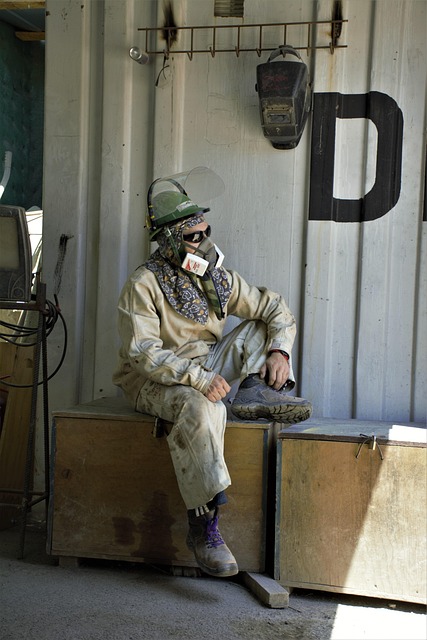Thinking About Welding? Explore How Training Can Help You Get Started
Welding is one of the most in-demand skilled trades — with applications in construction, manufacturing, and infrastructure. If you’re ready to shift into a hands-on career with long-term potential, this guide shows how welding training may help you develop job-ready skills and begin building a reliable future in the trades.

What Makes Welding Training Essential for Career Success?
Professional welding training transforms beginners into competent craftspeople through structured learning that combines theory with extensive practical application. Students learn fundamental welding processes including MIG, TIG, stick welding, and flux-core techniques while mastering safety protocols and industry standards. Quality programs provide access to professional-grade equipment, experienced instructors, and real-world project scenarios that mirror actual workplace conditions.
Training programs typically cover metallurgy basics, blueprint reading, welding symbols, and quality inspection methods. This comprehensive approach ensures graduates understand not just how to weld, but why specific techniques work best for different materials and applications. The structured environment allows students to make mistakes safely while building confidence and muscle memory essential for professional success.
How Do You Forge a New Path with Welding Training?
Starting a welding career requires deliberate preparation and skill development that training programs facilitate effectively. Most programs offer multiple scheduling options including full-time, part-time, and evening classes to accommodate different life situations. Students progress through increasingly complex projects, starting with basic bead runs and advancing to multi-position welding on various materials.
Modern welding training incorporates both traditional techniques and emerging technologies like robotic welding and advanced materials. This dual approach prepares students for current job opportunities while building adaptability for future industry developments. Many programs also include job placement assistance, helping students transition from classroom to workplace successfully.
Why Are Skilled Trades a Real Opportunity in Today’s Economy?
The skilled trades sector faces a significant workforce shortage as experienced workers retire faster than new professionals enter the field. This demographic shift creates exceptional opportunities for newcomers willing to invest in proper training. Unlike many industries susceptible to automation, welding requires human skill, judgment, and adaptability that technology cannot easily replace.
Welding work spans multiple industries, providing career flexibility and stability. Welders find employment in construction companies, manufacturing plants, shipyards, aerospace facilities, and energy sectors including renewable energy installations. This diversity means welders can often find work regardless of economic fluctuations affecting specific industries.
What Career Paths Can You Build Your Future with Every Weld?
Welding careers offer multiple advancement pathways beyond basic production welding. Experienced welders often progress to supervisory roles, quality inspection positions, or specialized areas like underwater welding or pipeline work. Some professionals become welding instructors, sharing their expertise with the next generation of craftspeople.
Entrepreneurial welders frequently establish successful businesses providing custom fabrication, repair services, or specialized welding solutions. The skills learned in training programs provide the foundation for these diverse career trajectories, making welding education an investment in long-term professional flexibility.
What Unique Aspects Define Welding Training in America?
American welding training programs must align with standards set by the American Welding Society (AWS), ensuring graduates meet industry requirements nationwide. Many programs offer AWS certification testing, providing students with nationally recognized credentials that validate their skills to employers. Community colleges, trade schools, and union apprenticeship programs each offer distinct approaches to welding education.
Some regions specialize in specific welding applications based on local industry needs. Coastal areas often emphasize marine welding and shipbuilding techniques, while industrial regions focus on manufacturing and structural welding. Pipeline welding programs are particularly prominent in energy-producing states, offering specialized training for high-demand, well-compensated positions.
How Much Does Welding Training Cost and What Programs Are Available?
Welding training costs vary significantly based on program type, duration, and location. Community colleges typically offer the most affordable options, while private trade schools may provide more intensive, accelerated programs. Understanding these options helps prospective students make informed decisions about their educational investment.
| Program Type | Institution Example | Duration | Cost Estimation |
|---|---|---|---|
| Community College Certificate | Houston Community College | 6-12 months | $3,000-$8,000 |
| Private Trade School | Lincoln Tech | 7-18 months | $15,000-$25,000 |
| Union Apprenticeship | United Association Local | 3-4 years | Paid training |
| Online + Local Practice | American Welding Online | 6-8 months | $2,000-$5,000 |
Prices, rates, or cost estimates mentioned in this article are based on the latest available information but may change over time. Independent research is advised before making financial decisions.
Welding training provides a practical pathway into a stable, well-compensated career field with excellent long-term prospects. The combination of technical skills, safety knowledge, and hands-on experience gained through professional programs prepares students for immediate employment and future career growth. As infrastructure needs continue expanding and manufacturing returns to America, trained welders will remain essential to economic development and industrial success.




